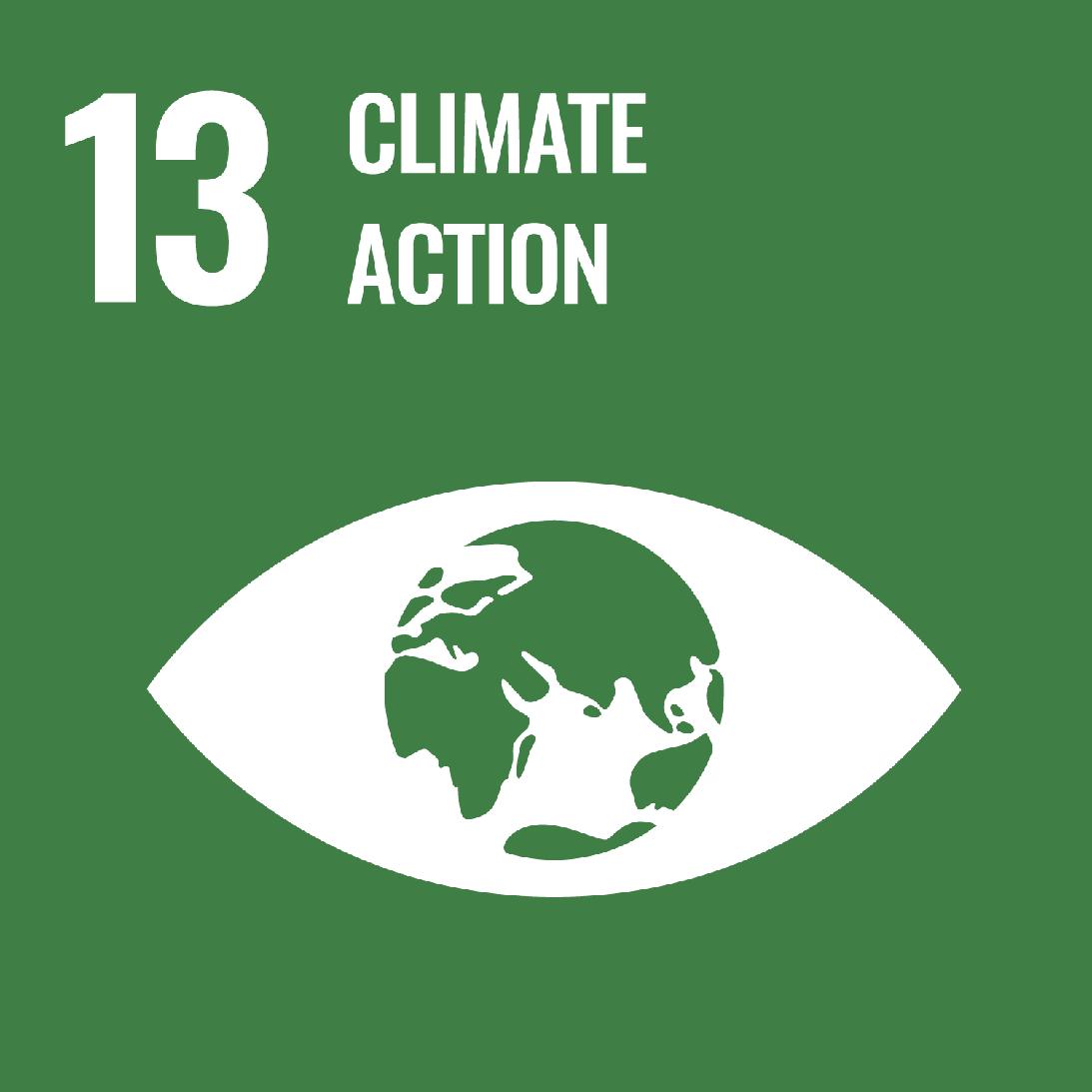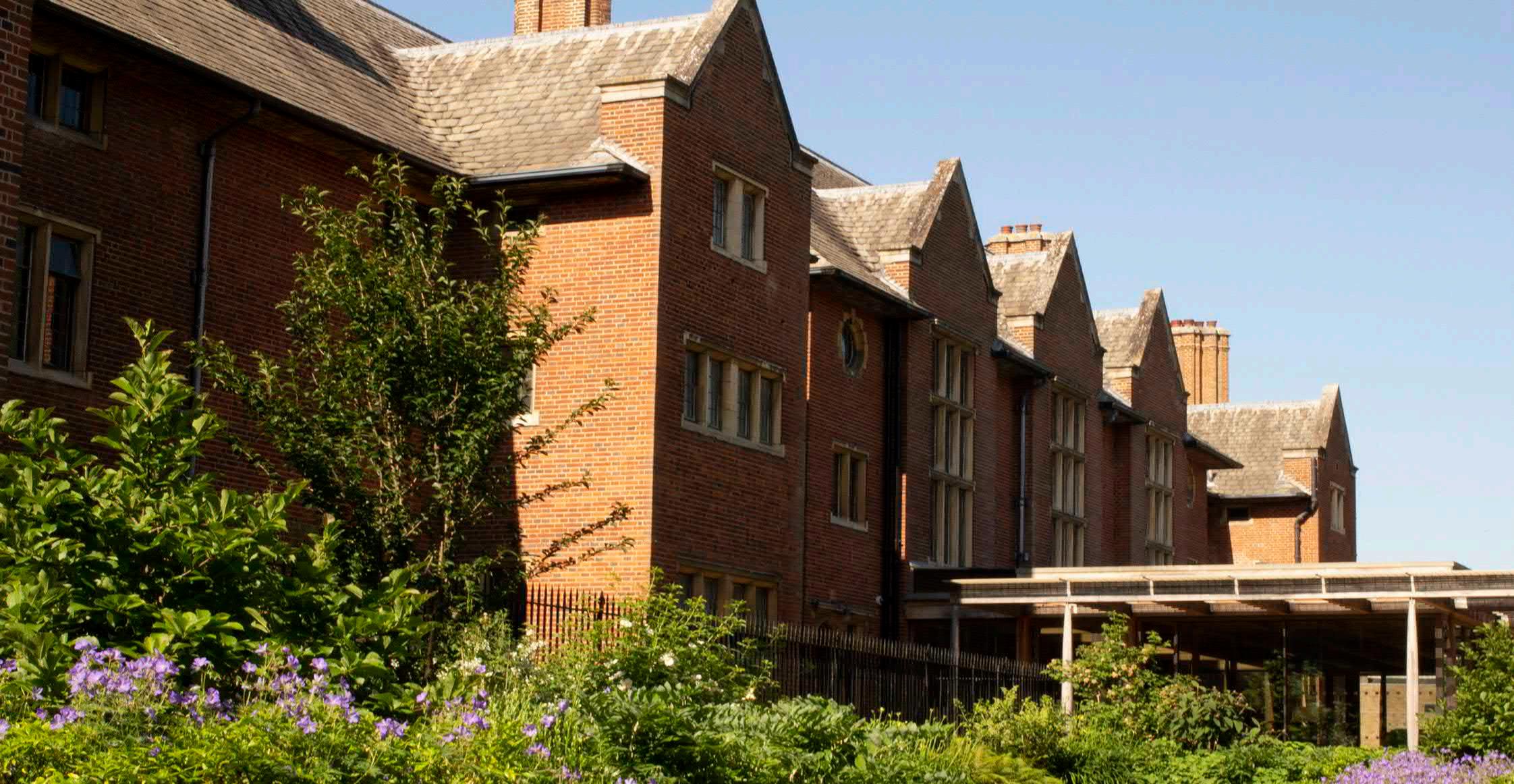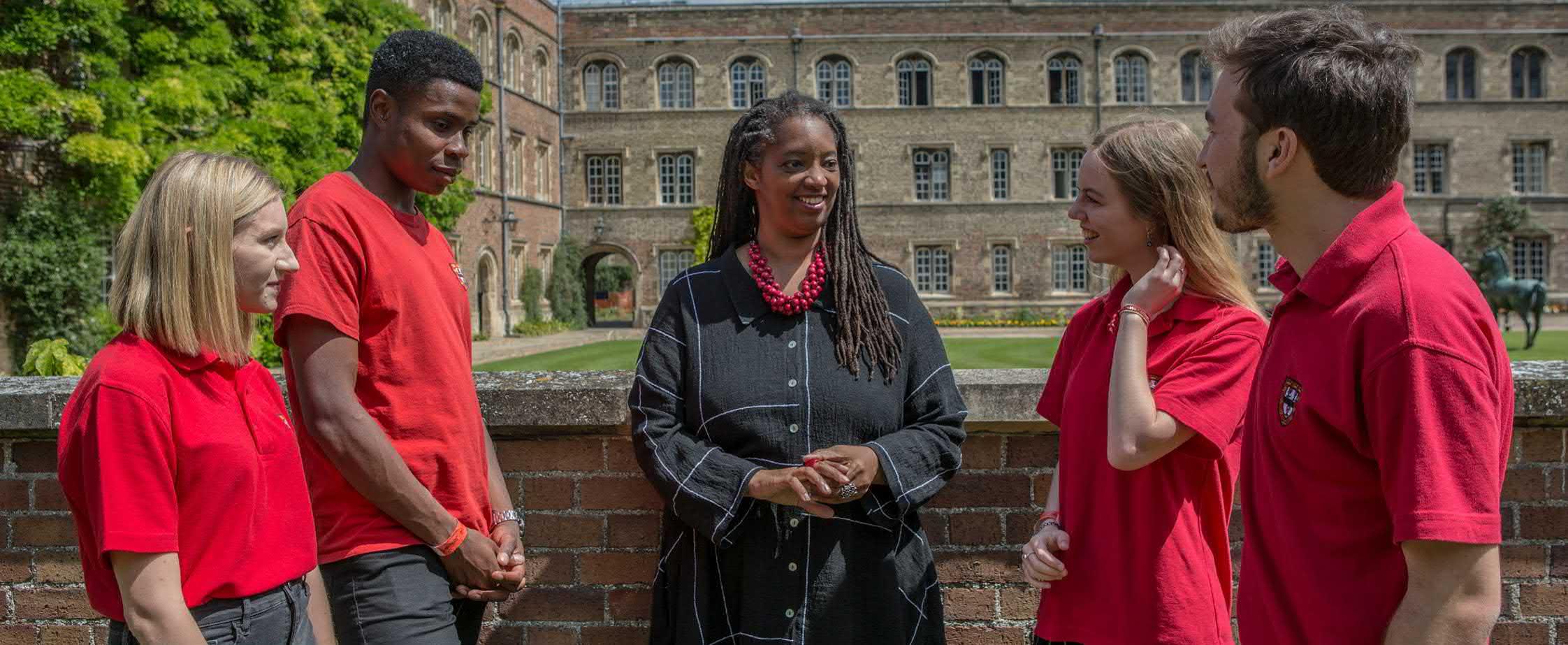
3 minute read
SDG 13 Climate action
Climate scientists are united in agreement that we must limit global temperature rise to 1.5°C or lower. If we fail to do so, the consequences will be profound and the implications for humanity and all other life forms will be severe.
Jesus College “is a place of education, religion, learning, and research” (Statute I.1(a)), and this requires us to engage in the understanding of climate change and to prepare our current and future members on how to deal with it.
What have we done so far?
The College has instigated a fourfold approach:
1. Education – we have hosted a series of events and conferences in the past year to explore issues related to climate change. This has enabled us to benefit from expertise across the University when making plans for the College, working together to help the University achieve its goals collaboratively.
2. Infrastructure – a site-wide services audit has been completed, and plans are now in place to increase electrical capacity and phase out the use of fossil fuels.
3. Buildings – we are making rolling improvements to our buildings. Improved insulation, secondary glazing, lagging on pipework and motion sensors are some examples of initiatives that are continually being prioritised.
4. Behavioural change – the student A-Z guide to sustainable living, and numerous initiatives around catering and waste, have been designed to shape behaviours consciously and subconsciously. With new students, Fellows and staff arriving each year, clear, concise and regular communication of our ambitions and expectations are vital.
The College held its first Green Week in 2019, including a College discussion about how we respond to the climate crisis, a plant sale, a clothes swap, a vegan Formal and campaigning workshops. This proved a great way to engage the whole community, and we plan to repeat it annually.

What are our plans?
Given the scale of the challenge we face as a society, and the complexity in addressing climate action, a multi-faceted approach is required over the coming years.
We will monitor our progress on climate change using the Science-Based Targets methodology developed by the University. This will help us measure our performance, and identify new initiatives to respond to the latest science and data.
We will continue to work with experts from across the University, learning from others’ best practice to accelerate decision-making and the implementation of new initiatives. This will aid in educating our community to make informed decisions that influence lifelong behaviours.
The Student A-Z guide to Sustainable Living will be adapted for staff, Fellows and Research Associates. Whilst the guide has been generated with climate change in mind, its remit encompasses many aspects of sustainability in the College.
Our progress towards the goals laid out in this Sustainability Strategy will be reviewed every term by the Environment Committee and reported to Council annually. We will continue to place sustainability high on the agenda when planning all future developments to the College.
Launching the Responsible Investment Policy, including a timeline to divest from fossil fuel companies, is a significant milestone that will reinforce our commitment to tackling climate change.
Aims and targets
• Aim to achieve Net Zero carbon status for Scope 1 and 2 emissions by 2030, avoiding any carbon offsetting as part of any strategy, while recognising that we may be constrained by factors such as local electricity infrastructure, availability of technology, and serious disruption to essential College activities.
• Annual reporting on progress using the ScienceBased Targets approach.
• Launch a new A-Z guide for the whole College community.
• Develop a ‘Green Hub’ for events and training.











